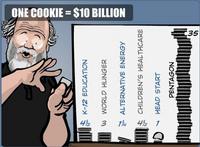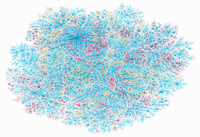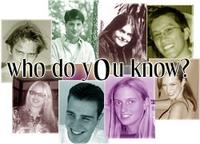|
This is my dynamic, frequently updated homepage. This is a NewsLog, also known as a WebLog or Blog.
Everything is evolving, so don't assume too much.
People to watch:
Adina Levin
Andrius Kulikauskas
Britt Blaser
Catherine Austin Fitts
Chris Corrigan
Clay Shirky
Dan Gillmor
Dave Pollard
David Allen
David Weinberger
Dewayne Mikkelson
Dina Mehta
Doc Searls
Elisabet Sahtouris
Elizabeth Lawley
Euan Semple
Florian Brody
Frank Patrick
Gen Kenai
George Dafermos
George Por
Graham Hancock
Greg Elin
Hazel Henderson
Heiner Benking
Inspector Lohman
Jean Houston
Jerry Michalski
Jim McGee
Jim Moore
John Abbe
John Perry Barlow
John Robb
Joi Ito
Jon Husband
Jon Lebkowsky
Jon Udell
Jonathan Peterson
Judith Meskill
Julian Elvé
Julie Solheim
Kevin Marks
Lawrence Lessig
Leif Smith
Letecia Layson
Lilia Efimova
Lisa Rein
Marc Canter
Mark Oeltjenbruns
Mark Pilgrim
Mark Woods
Martin Dugage
Martin Roell
Mary Forest
Matt Mower
Max Sandor
Michael Fagan
Mike Owens
Mikel Maron
Mitch Kapor
Mitch Ratcliffe
Nathalie dArbeloff
Netron
Noam Chomsky
Paul Hughes
Peter Kaminski
Phil Wolff
Philippe Beaudoin
Ray Ozzie
Raymond Powers
Rebecca Blood
Roger Eaton
Roland Tanglao
Ross Mayfield
Scott Lemon
Sebastian Fiedler
Sebastien Paquet
Skip Lancaster
Spike Hall
Steven Johnson
Stuart Henshall
Thomas Burg
Thomas Madsen-Mygdal
Thomas Nicholls
Timothy Wilken
Todd Suomela
Tom Atlee
Tom Munnecke
Tom Tomorrow
Ton Zijlstra
Lionel Bruel
Loic Le Meur
Nancy White
Mark Frazier
Merlin Silk
Robert Paterson
Colby Stuart
Nova Spivack
Dan Brickley
Ariane Kiss
Vanessa Miemis
Bernd Nurnberger
Sites to watch:
Edge
Junto
Absara
Rhizome
Nanodot
HeadMap
Openworld
FutureHi
Imaginify
Do No Harm
BoingBoing
Smart Mobs
Webcamorama
MetaFilter
NotThisBody
Disinfopedia
YES Magazine
Collective Web
WorldChanging
Disinformation
Escape Velocity
Space Collective
Friendly Favors
Emergent by Design
Independent Media
Global Ideas Bank
Forbidden Science
Greater Democracy
ThoughtsOnThinking
Disclosure Project
Explorers Foundation
Manufacturing Dissent
Collective Intelligence
Action without borders
Free Expression Network
Co-intelligence Institute
Electronic Frontier Foundation
French:
Emmanuelle
Manur
Elanceur
Loeil de Mouche
IokanaaN
Blog d'Or
Le Petit Calepin
GeeBlog
Absara
Guillaume Beuvelot
Ming Chau
Serge Levan
Jean Michel Billaut
C'est pas Mécanique

I live in Toulouse, France where the time now is:
01:06
Unique Readers:

Primarily
Public Domain
Everything I've written here is dedicated to the
Public Domain.

The quotes from other people's writings, and the pictures used might or might not be copyrighted, but are considered fair use. Thus, overall, this weblog could best be described as being:
Primarily Public Domain. |
Syndication:
 ![Validate my RSS feed [Valid RSS]](http://www.newciv.org/pic/valid-rss.png)
|
| Saturday, January 31, 2004 |  |
|
|
|
 Via BoingBoing, an interesting interview with linguist Alexandra Aikhenvald, in New Scientist about the study of languages that are going extinct: Via BoingBoing, an interesting interview with linguist Alexandra Aikhenvald, in New Scientist about the study of languages that are going extinct:"If these so-called "exotic" languages die, we'll be left with just one world view. This won't be very interesting, and we'll have lost a vast amount of information about human nature and how people perceive the world. (...) [W]ithout their language and its structure, people are rootless. In recording it you are also getting down the stories and folklore. If those are lost a huge part of a people's history goes. These stories often have a common root that speaks of a real event, not just a myth. For example, every Amazonian society ever studied has a legend about a great flood.
"...In English I can tell my son: "Today I talked to Adrian", and he won't ask: "How do you know you talked to Adrian?" But in some languages, including Tariana, you always have to put a little suffix onto your verb saying how you know something - we call it "evidentiality". I would have to say: "I talked to Adrian, non-visual," if we had talked on the phone. And if my son told someone else, he would say: "She talked to Adrian, visual, reported." In that language, if you don't say how you know things, they think you are a liar. This is a very nice and useful tool. Imagine if, in the argument about weapons of mass destruction, people had had to say how they knew about whatever they said. That would have saved us quite a lot of breath..." Yeah, I think government officials and all journalists and scientists should be ordered to speak that language. Or something like it.
Tariana is still spoken by some natives in the Amazon, and they now have a full dictionary thanks to Alexandra Aikhenvald. Other languages are not so lucky. About 60-70% of linguistic diversity in the north-western region of Brazil has gone in the last 100 years. On the Atlantic coast of Brazil it's about 99%. Around the world 60-70% have disappeared.
[ Culture | 2004-01-31 07:02 | | PermaLink ] More >
|
|
|
|
English speakers might think it is hard to learn other languages, full of inconsistent rules for how one needs to pronounce things. But English is certainly no better. I got an e-mail with great examples, roughly what you find in this page.- The bandage was wound around the wound.
- The farm was used to produce produce.
- The dump was so full that it had to refuse more refuse.
- We must polish the Polish furniture.
- He could lead if he would get the lead out.
- The soldier decided to desert his dessert in the desert.
- Since there is no time like the present, he thought it was time to present the present.
- At the Army base, a bass was painted on the head of a bass drum.
- When shot at, the dove dove into the bushes.
- I did not object to the object.
- The insurance was invalid for the invalid.
Why, oh why? Just the way it is, I guess.
[ Culture | 2004-01-31 17:01 | | PermaLink ] More >
|
|
|
|
 Here's the story of a rather stunningly capable parrot. Here's the story of a rather stunningly capable parrot.The finding of a parrot with an almost unparalleled power to communicate with people has brought scientists up short.
The bird, a captive African grey called N'kisi, has a vocabulary of 950 words, and shows signs of a sense of humour.
He invents his own words and phrases if he is confronted with novel ideas with which his existing repertoire cannot cope - just as a human child would do.
N'kisi's remarkable abilities, which are said to include telepathy, feature in the latest BBC Wildlife Magazine.
N'kisi is believed to be one of the most advanced users of human language in the animal world.
About 100 words are needed for half of all reading in English, so if N'kisi could read he would be able to cope with a wide range of material. He uses words in context, with past, present and future tenses, and uses humor. Are you sure that's really a parrot? If so, somebody has some explaining to do. The telepathy is particularly cool.
[ Science | 2004-01-31 17:49 | | PermaLink ] More >
|
|
| Friday, January 30, 2004 |  |
|
|
|
 Bad Signal: Bad Signal:"If you believe that your thoughts originate inside your brain -- do you also believe that television shows are made inside
your television set?" seen here and here.
[ Thoughts | 2004-01-30 08:33 | | PermaLink ] More >
|
|
|
|
 A nice Flash presentation narrated by Ben Cohen, founder of Ben&Jerry's, done for TrueMajority.org, in which he explains, using Oreo cookies, the way that the U.S. federal budget is divided up, and how little rearrangement it would take to fund most of America's social programs. Simple and compelling. A nice Flash presentation narrated by Ben Cohen, founder of Ben&Jerry's, done for TrueMajority.org, in which he explains, using Oreo cookies, the way that the U.S. federal budget is divided up, and how little rearrangement it would take to fund most of America's social programs. Simple and compelling.
[ Politics | 2004-01-30 11:39 | | PermaLink ] More >
|
|
|
|
Kottke has a post about the move The Corporation and accompanying book. A quote from The Corporation:Considering the odd legal fiction that deems a corporation a "person" in the eyes of the law, the feature documentary employees a checklist, based on actual diagnostic criteria of the World Health Organization and DSM IV, the standard tool of psychiatrists and psychologists. What emerges is a disturbing diagnosis.
Self-interested, amoral, callous and deceitful, a corporation's operational principles make it anti-social. It breaches social and legal standards to get its way even while it mimics the human qualities of empathy, caring and altruism. It suffers no guilt. Diagnosis: the institutional embodiment of laissez-faire capitalism fully meets the diagnostic criteria of a psychopath. It makes sense. And of course not all corporations are like that. Corporations that are run purely for a profit motive and that lack any people-oriented culture are mostly like that. Good capitalistic theory says that a corporation HAS to have exclusively a profit orientation. Luckily not everybody's thinking like that. The Kottke article mentions a quote from a book:A business develops an identity by providing a product or a service to people. To do that it needs capital, and it needs to make a profit, but no more than it needs to have competent employees or customers or any other thing that enables production to take place. None of this is the goal of the activity. Unless of course if somebody owns that business and they decide that it is. Which they do a lot of the time. A corporation is a convenient way for individuals to covertly act as psychopaths without owning up to any responsibility for it. And of compelling other people to do the dirty work involved, again without responsibility.
[ Organization | 2004-01-30 12:12 | | PermaLink ] More >
|
|
| Wednesday, January 28, 2004 |  |
|
|
|
From Alka Dwivedi, an excerpt from a book "Maverick" by Ricardo Semler, about a Brazilian company that is organized and run in a somewhat unusual manner.When I took over Semco from my father 12 years ago, it was a traditional company in every respect, with a pyramidal structure and a rule for every contingency. But today our factory workers sometimes set their own production quotas and even come in their time to meet them, without prodding from management or overtime pay. They help redesign the products they make and formulate the marketing plans. Their bosses, for their part, can run our business units with extraordinary freedom, determining business strategy without interference from the top brass. They even set their own salaries, with no strings. Then again, everyone will know what they are, since all financial - information at Semco is openly discussed.
Indeed our workers have unlimited access to our books ( and we keep one set). To show we are serious about this, Semco, with the labor unions that represent our workers, developed a course to teach everyone, even messengers and cleaning people, to read balance sheets and cash flow statements.
For truly big decisions, such as buying another company, everyone at Semco gets a vote. A few years ago, when we wanted to relocate a factory, we closed down for a day and everyone piled into buses to inspect three possible new sites. Then the workers decided. Their choice hardly thrilled us, since it was next to a company that was frequently on strike. But while no one in management wanted front row seats to labor-management strife, we moved in anyway. In the lobby of our headquarters, a standard-issue office building with four floors of steel and glass, there is a reception desk but [no] receptionist. That's the first clue that we are different.
We don't have receptionists. We don't think they are necessary, despite all our visitors. We don't have secretaries either, or personal assistants. We don't believe in cluttering the payroll with ungratifying, dead-end jobs. Everyone at Semco, even top managers, fetches guests, stands over photocopiers, send faxes, type letters, and dials the phone. We don't have executive dining rooms and parking is strictly first-come, first-served. It's all part of running a natural business.
At Semco we have stripped away the unnecessary perks and privileges that feed the ego but hurt the balance sheet and distract everyone from the crucial corporate tasks of making, selling, billing and collecting. Our offices don't even have the usual number of walls. Instead, a forest of plans separates the desks, computers and drawing boards in our work areas. The mood is informal: some people wear suits and ties or dresses, others jeans and sneakers. It does not matter. If people want to emulate Thomas Watson and don white button-downs, that's fine. But turtleneck and T-shirts are okay, too. And I want our people to feel free to put their feet on their desks, just like me.
I am pleased to report that more than once a group of Semco executes has been interrupted by people who wanted to use their conference room to hold a birthday party. They use my room in office to hold conferences. Sometimes when I enter in my room, someone was sitting in my chair, using my phone. I have to wait on visitors' sofa for the meeting to get over.
We have a sales manager named Rubin Agater who sits there reading the newspaper hour after hour, not even making a pretence of looking busy. I am sure this mystifies some of our visitors. Most modern managers would not tolerate it. But when a Semco pump on an oil tanker on the other side of the world fails and millions of gallons of oil are about to spill into the sea, Rubin springs into action. He knows everything there is to know about our pumps and how to fix them. That's when he earns his salary. No one cares if he doesn't look busy the rest of the time. Sounds like a fun place to work. And it seems to translate into a productive and profitable company. But it also sounds like a socialist commune. Contradiction? Not necessarily. People are more productive when their opinions and their work makes a difference and they aren't hindered by meaningless bureaucracy. This is an inspiring story, and from I can understand, entirely non-fictional, and one can go and visit the company and find out for oneself.
[ Organization | 2004-01-28 18:53 | | PermaLink ] More >
|
|
|
|
|
|
|
|
 Fluid Flow, via McGee's Musings: Fluid Flow, via McGee's Musings:"A standard definition of a weblog is a series of posts in "reverse chronologic order". I can't give you a reference here because the standard online reference sites don't have a definition for "weblog"
But, as a geologist, I understand "reverse chronologic order". Reverse chronologic order is youngest on top and older as you go down. This is a stratigraphic order. Younger deposits bury older deposits, so you get progressively older as you dig down. So weblogs view the world in a stratigraphic order.
It would be nice if the weblog folks acknowledge those who have gone before them. The Earth has been recording events in reverse chronologic order for over 3.8 billion years. The oldest weblog is the Earth." Sometimes I try to convince my wife that the mess on my desk is a deliberate attempt of organizing things like nature does it. Old lifeforms and cultures live their lives and leave their remains around, and new things are simply built on top, on the shoulders of the old. And a complete archaeological and geological record is left behind. You can in a logical manner dig down to various layers and find out what life was like last week or a hundred years ago. And you don't want any amateurs to come along and mess up history by disturbing the authentic arrangement. She usually doesn't buy it.
[ Organization | 2004-01-28 19:22 | | PermaLink ] More >
|
|
| Tuesday, January 27, 2004 |  |
|
|
|
 Some words from Bala Pillai: Some words from Bala Pillai:"Imagine a world where each of us can telepathically find and match with our complements instantly. Any moment we have a want or a have.
Call that point downstream, in the flowing river of our and our childrens' lives, "N". Work backwards, upstream, from N. What is N-1?, What is N-2? Let us say N-5= us being able to find and match our complements very quickly using the Internet and through minds that bridge the wired with the unwired. In short N-5 = Halls Without Walls, Metrics-Rich Automated Matchmaking & Human Bridges
What stands in the way of super-conductivity between minds for frictionless synchronization? What are the problems (for which there are rewards to those who solve them), that we have to address to reach N-5? Insentience? Readiness to reveal our complementaries? Knowing what it is that we really want and have? Hierarchy of values dissonance? Semantic dissonance? Cognition dissonance? Valuation (of our respective traits and talents) dissonance? Distrust? Commitment (Unconditional love) dissonance? Ethos dissonance? Interfacing our minds with the tools, protocols and processes that find, search and bridge us with our complements?
How do we swim with the current more, in finding the metrics for the answers, as we head towards N-5?
If we have put Man on the Moon, can't we make it to N-5?
Can we try Ecosystems Thinking? Can we try "reverse engineering" Nature for clues?" His writing is dense, but very inspiring. And I often find myself thinking in similar paths.
A big reason the world isn't working better is that we're having a hard time matching needs with haves. We're bad at connecting resources up with where they would do the most good. It is hard for people to find out who they would accomplish the most by working with. Hard to find *complements*. And the problem is primarily informational. We don't really know. We don't have good information, so we go by crude and artificial constructs, like what is advertised for sale on TV, or who we run into at a party.
To imagine a world where we all had a high level of telepathy is an excellent starting point for a lot of revolutionary possibilities. Lies would no longer have any manipulative value if everybody could see right through them and know the truth without bias. You'd have to really do good things to be seen as doing something valuable. Duh. Same with hypocritical morals. You can't get away with applying different rules to others than what you live by. If you're a smuck, everybody will know it.
And then the point Bala is getting at. If you somehow could perceive directly and instantly what everybody in the world needed and wanted, and what resources were available, there'd of course be no reason to waste time and energy on all the stuff that doesn't fit and doesn't work. If you really KNEW, you'd of course do the things you most want to do, where they make the most difference, and with the people who're most suited and interested in doing it with you. No need to do useless activities in a job you don't like, for a company that produces some junk that people wouldn't really want if they knew what it was and what the alternatives were.
And you'd help others do what they want to do when it is easy for you to do so. If you happened to know your neighbor also needs a bag of sugar from the market and that he's currently busy, you can just bring it for him, instead of you both having to go. If you're done with that book you're reading, you can just toss it to a guy on the street who also want to read it, rather than taking it home and hide it in the garage.
And, yes, maybe we can work towards that kind of world, and maybe ways we can organize ourselves, technologies we might employ, and ways we might think about it can take us a great deal of the way. Even short of a global evolutionary leap that gives us all holographic telepathy and clairvoyance. And, yes, nature probably is one of our best teachers in that. After all, ecosystems quite masterfully manage to ensure that nothing really is wasted, even though it all can seem a bit chaotic. No used paperbacks and nuclear waste gets stacked up forever in nature's ecosystems. Whatever one sector needs might well be a waste product from another sector. Whatever you leave behind probably gets eaten up by something else. And telepathy probably has nothing to do with it, so we ought to easily be able learn from what trees and ants and bacteria are doing. And maybe find better ways of synchronizing our work with less friction.
[ Organization | 2004-01-27 16:44 | | PermaLink ] More >
|
|
|
|
Jay Rosen from Davos: "There is No Demand for Messages" via Doc Searls, who's been saying that kind of thing for some time:
Beginning in the mid 19th century, and all through the 20th, seeing people as masses could be industrially sustained. There were only so many channels, so many ways or reaching people en masse, and this convinced the message senders that there was an audience out there. But now being a bulk message sender via the media is like the guy in the street trying to get you to take a handbill. He may have motivation for delivering the message, you have none to take it.
They are the people formerly known as the audience. And they do not want your message. They're right. If you're thinking in terms of "getting your message out" to as many people as possible, chances are that a lot of them will consider it unwanted spam, whatever the medium might be. Better think about what you can do together WITH all those individuals, that they're likely to voluntarily want to participate in.
[ Culture | 2004-01-27 17:15 | | PermaLink ] More >
|
|
| Sunday, January 25, 2004 |  |
|
|
|
 Orkut is a new online social network. And I need another one of those like I need a flowerpot stuck on my head. It is getting a little irritating to go through the same ritual every time, of looking for people you know and inviting others you think might be interested. That should really be automatic. Orkut is a new online social network. And I need another one of those like I need a flowerpot stuck on my head. It is getting a little irritating to go through the same ritual every time, of looking for people you know and inviting others you think might be interested. That should really be automatic.
Most recently I had joined OpenBC, which I like. Has some features I like better than Ryze and not a lot of annoying "You'd actually see the results of this search if you were a GOLD member" messages. And a predominantly European focus. Got some very good contacts out of that already.
And then Orkut is announced Thursday. Interesting phenomenon about how quickly things happen, and how somehow that network happened to right away seem more compelling, even though the features are not all that different from the other ones. For one thing, it is affiliated with Google, done by one of their employees, supposedly in his spare time, so it got a lot of exposure. And then it is by invitation only, which somehow makes it seem a slight bit more attractive, and might make it more likely that one feels obligated to invite all one's friends, so they aren't left out. I got the first invitation at 2AM. And didn't realize right away that the network had started the same day. But now, two days later, *everybody* seems to have joined it already, and it is buzzing with discussion groups and so forth. Well, *everybody* who normally is active in that kind of network. Which is a large group, but still largely the same faces.
In 1995 my vision was to make a network of networks. Social network servers, where people could join the node that they were most attracted to, and there would be a way of linking them all together, so you could find each other even if you didn't join in exactly the same place. Well, I didn't quite figure out how to do that technically, so it became "just" one server with a particular social network. But now that it is a mainstream idea, embraced by a lot of techies, somebody really ought to figure out a way that they'll all interact with each other.
Network connections should be more like a commodity. Like e-mail addresses and accounts. You'll choose a server and a client that has the features you like, but you should really be able to link to people on other servers as easily as on your local server. It should be controlled more by my local address book and preferences than by a particular server. I should be able to find people across all servers, and be able to find the special interest groups they've set up. That'll take adherance to standards. And some new ones are needed for the people networking thing. FOAF seems to be one of the more promising attempts in that direction. We need a set of Open Network standards that all these networks would have a competitive advantage in adhering to.
[ Organization | 2004-01-25 08:13 | | PermaLink ] More >
|
|
|
|
 Ananova: Ananova:Russian scientists have been unable to disprove a teenage girl who claims she has x-ray vision and can see inside human bodies.
Doctors at Saransk's children hospital carried out exhaustive tests on 16-year-old Natalia Demkina whose claims she has x-ray vision has gripped the Russian public.
But so far they have been unable to come up with a logical explanation for the vivid and detailed accounts she gives of what she sees when she looks inside the human body. Eh, maybe the logical explanation is that she HAS x-ray vision.
[ Science | 2004-01-25 12:36 | | PermaLink ] More >
|
|
| Saturday, January 24, 2004 |  |
|
|
|
 Via Sounding Circle, a story about Coca Cola using up valuable groundwater in various parts of India, and leaving a mess. Via Sounding Circle, a story about Coca Cola using up valuable groundwater in various parts of India, and leaving a mess.Another dark spot is Mehdiganj (UP), where Coke built a bottling plant in 1995. Two tube wells draw hundreds of thousands of liters of ground water each day. Geologists have estimated that the company's voracious consumption may have lowered the groundwater level as much as 40 feet. The area's water crisis was further aggravated by the World Bank-funded Golden Quadrangle superhighway project, which shut off the water pipeline from a neighboring area. The Coke plant's proximity to the holy city of Benares has created further controversy. The factory's waste product was being disposed in a nearby canal that emptied into the holy Ganges River.
Local Indians were enraged when they discovered that polluted waste was being dumped into the Ganges. Until recently, there was no clear way to test for Coke-related pollution in the vast Ganges. But in order to make way for the superhighway, construction workers dislodged Coke's waste disposal canal. The company then began disposing its waste products into neighboring fields and mango groves. At this point, the level of toxic waste became readily obvious to local residents. Coca Cola is denying everything and claiming it is the "target of a handful of extremist protesters". More on the shadey world of Coca Cola business here
[ Culture | 2004-01-24 19:47 | 0 comments | PermaLink ]
|
|
|
|
Via Boing Boing from Boston Globe:The Senate Sergeant at Arms and the Secret Service have concluded that ranking Republicans have been electronically burgling Democrat computer files. Republican staff members of the US Senate Judiciary Commitee infiltrated opposition computer files for a year, monitoring secret strategy memos and periodically passing on copies to the media, Senate officials told The Globe. From the spring of 2002 until at least April 2003, members of the GOP committee staff exploited a computer glitch that allowed them to access restricted Democratic communications without a password. Trolling through hundreds of memos, they were able to read talking points and accounts of private meetings discussing which judicial nominees Democrats would fight -- and with what tactics. Eh, so how is this different from Watergate again? Why does this just pass through the news without anybody getting lined up to go to jail?
[ Politics | 2004-01-24 19:47 | 0 comments | PermaLink ]
|
|
|
|
BBC Science:Scientists say that they have shown how the brain can crack complex mental puzzles while its owner is sleeping. Research at Luebeck university, in Germany, says tests on 106 volunteers back up anecdotal evidence that a good night's sleep can help solve problems. The volunteers were shown a number puzzle in which was embedded a "hidden code" revealing the answer, the journal Nature reports. Those kept awake overnight reportedly had far less chance of solving it. The scientists believe that because the brain appears to restructure information from the previous day during sleep hours, a period of sleep may produce insight into problems such as these. Other experts say it is the first hard evidence that creativity and problem-solving may be assisted by the activity of the brain during sleep. Dr Jan Born, who led the study, said: "This restructuring might be occurring in such a way that the problem is easier to solve." He highlighted a period of sleep called slow-wave sleep - a deep sleep not thought to be punctuated by dreams. Even small reductions in this sleep phase have been linked by other studies to a decrease in memory function, and in decreasing ability to recognise "hidden structures". Their 106 volunteers were all given a quick look at a test that involved sorting numbers based on a couple of set rules. However, underlying these rules was a third, "hidden" rule which, when spotted, dramatically simplified the completion of the puzzle. Some of the volunteers then got a full eight hours' sleep, while others had various degrees of sleep deprivation. The scientists then sat back to see which volunteers had a flash of inspiration and spotted the third rule and how quickly they managed it. Twice as many of the rested participants caught on to the rule than volunteers from the sleepless group. Shouldn't be too big a surprise, but I guess it is good to have "hard evidence".
[ Science | 2004-01-24 19:47 | | PermaLink ] More >
|
|
| Friday, January 23, 2004 |  |
|
|
|
 A respected British philosopher and university professor is speaking up for the virtues of lust. From "Should Lust Really Be a Sin?": A respected British philosopher and university professor is speaking up for the virtues of lust. From "Should Lust Really Be a Sin?":Lust is one of the seven deadly sins first identified by Pope Gregory the Great in the 6th century. He nailed them all: Lust, anger, envy, gluttony, sloth, pride, and greed. It's a cornucopia of bad living.
But hold on! A leading philosopher at Britain's Cambridge University says lust has been wrongly branded as a vice and should be "reclaimed for humanity" as the life-affirming virtue that it is.
Professor Simon Blackburn told the London Sunday Times that lust has gotten a bad name from bad ideology that has hindered its "freedom of flow." His quest is to rescue lust, arguing it has been wrongly condemned for centuries. And he has a prestigious backer: The Oxford University Press, which will publish Blackburn's project on the modern relevance of the seven deadly sins, including lust.
Blackburn told the Times that he wants to save lust "from the denunciations of old men of the deserts, to deliver it from the pallid and envious confessor, and the stocks and pillories of the Puritans, to drag it from the category of sin to that of virtue."
How does he plan to do this? He defines lust as "the enthusiastic desire for sexual activity and its pleasures for its own sake." But if lust is reciprocated, that leads to pleasure and "best flourishes when unencumbered by bad philosophy and ideology...which prevent its freedom of flow."
Here is Blackburn's logic at work: Thirst is not considered sin, nor is it criticized. But thirst can lead to drunkenness. In the same way, lust should not be condemned just because it can go unchecked.
"The important thing is that generally anything that gives pleasure has a presumption in its favor," Blackburn explained to the Times. "The question is how we control it." I agree with him. One of the most screwed up qualities the world is the prevalence of a perverted view of lust and sex and bodily pleasures. Perverted in the sense that what is perfectly natural, healthy and useful gets turned into something dirty, forbidden and ungodly. Really it is quite simple from nature's hand. The activities that further survival tend towards being pleasurable. If feels good to drink when you're thirsty. Good food tastes good. Poisoned food usually doesn't. It feels good to love somebody. It is good to get one's juices flowing. Sex is a good thing. That should be the baseline. Of course there are lots of things one can screw up about it, just like one can eat too much of the wrong thing. Doesn't mean that eating is basically bad. Same with lust. It makes things happen, motivates, makes life worth living.
More from Blackburn here, here and here.
[ Thoughts | 2004-01-23 07:31 | | PermaLink ] More >
|
|
|
|
 From Chris Corrigan: From Chris Corrigan:From Kevin Kelly's blog, comes a review of the book Art and Fear which includes this point:
"The ceramics teacher announced on opening day that he was dividing the class into two groups. All those on the left side of the studio, he said, would be graded solely on the quantity of work they produced, all those on the right solely on its quality. His procedure was simple: on the final day of class he would bring in his bathroom scales and weigh the work of the "quantity" group: fifty pound of pots rated an "A", forty pounds a "B", and so on. Those being graded on "quality," however, needed to produce only one pot -albeit a perfect one - to get an "A". Well, came grading time and a curious fact emerged: the works of highest quality were all produced by the group being graded for quantity. It seems that while the "quantity" group was busily churning out piles of work - and learning from their mistakes - the "quality" group had sat theorizing about perfection, and in the end had little more to show for their efforts than grandiose theories and a pile of dead clay."
Blogging vs. writing books, among many other lessons. Hm, interesting. And business and life in general, I guess. Doesn't pay off very well to be a perfectionist if one holds out for the perfect outcome. But if one puts out a lot of stuff without being too attached to the details AND one has some kind of sense of where it ought to be going, one might actually get somewhere.
[ Organization | 2004-01-23 08:11 | | PermaLink ] More >
|
|
| Thursday, January 22, 2004 |  |
|
|
|
 I'm struggling with how to start thinking more like an entrepreneur. Like somebody who continuously sees opportunities and acts on them. Somebody who plays with ideas and resources and puts them together in new ways, and sticks with them until viable systems and organizations have been put in place. That could mean being a skilled business person who starts and runs businesses, but it doesn't have to. Has never worked very well for me to focus on money first, for one thing. Seems to be my lot to do good things that need doing and that leaves the world a little better, and then monetary resources and monetary rewards are a side-issue to that. Shouldn't stop me from being an entrepreneur, though. But it would be more in the social entrepreneur direction. Creating things that makes the world work a little better for people. I'm certainly not going to be the MLM type who pushes products I don't care about. Can't do that. But I wouldn't mind becoming comfortably wealthy. I'm struggling with how to start thinking more like an entrepreneur. Like somebody who continuously sees opportunities and acts on them. Somebody who plays with ideas and resources and puts them together in new ways, and sticks with them until viable systems and organizations have been put in place. That could mean being a skilled business person who starts and runs businesses, but it doesn't have to. Has never worked very well for me to focus on money first, for one thing. Seems to be my lot to do good things that need doing and that leaves the world a little better, and then monetary resources and monetary rewards are a side-issue to that. Shouldn't stop me from being an entrepreneur, though. But it would be more in the social entrepreneur direction. Creating things that makes the world work a little better for people. I'm certainly not going to be the MLM type who pushes products I don't care about. Can't do that. But I wouldn't mind becoming comfortably wealthy.
And, now, there are some ways that successful entrepreneurs, business people and social change activists would tend to think differently from your average 9-5 employee/worker person. The employee thinking is that you need to look good and do good work, and improve your skills and image so that you'll be more acceptable, and to always jockey for position so that you will look acceptable for a job higher in the hierarchy. Whereas the successful entrepreneur is more likely to look at what resources could be available and what one might do with them. And he'll have some kind of drive that will get him to keep at it until something works. Which might include changing strategies or environment or positioning or resources along the way, until it works. Whereas the employee person tends towards trying to keep things stable within a set environment.
Many successful business people and self-made millionaires seem surprisingly to be not as smart as one might expect. Their initial idea might be mediocre. Like "sell my homemade cookies in the mall". But somehow they commit themselves to making it work, persuade others to go along with it, solve the problems that come up, adjust some details along the way. And once you're a 100 million dollar company everybody will think it was a brilliant idea. But what made it happen often isn't really the brilliance of the idea. Rather that it is a good idea, and somebody figures out how to make it happen and sticks with it. Often somebody who doesn't know that it isn't a brilliant idea, or who doesn't know it is impossible.
I have done quite a few things that could have been the basis for a viable business or other type of viable organization. And I've been quite successful in several different arenas. And it is not like I haven't started good things that people sometimes were very happy with. But in a weird way I've always tended towards doing it more as a worker than as an entrepreneur. I do have certain leadership qualities, but usually in the sense that I inspire something to happen, and maybe take charge in solving a particular problem, but then I usually expect to sort of disappear and go back to work. Which gets me in trouble once in a while. I'll have to figure out how to apply my own particular style and skills towards successful ventures.
An entrepreneur type of person is of course not just sitting waiting to be discovered, or just trying to do whatever is thrown his way. He'll go out and find opportunities, try to make them work, and if he keeps at it, some of them might actually work. But he's creating something new, bringing together the resources for making it happen, and testing it on the universe.
I'm sort of trying to convince myself. Really, I'd much rather that I could just sit around and do my own thing, and the universe would just support me. And sometimes jobs feel like that. You just show up and the paycheck arrives every two weeks, no matter what you actually accomplish, within certain limits. So, I'm trying to overcome my own inertia and think differently. Trying not to be a perfectionist would probably be a good start.
[ Diary | 2004-01-22 11:11 | | PermaLink ] More >
|
|
|
|
 An old, but very inspiring, article in Fast Company about Fernando Flores and his style of working company executives into thinking and acting their job differently. Fernando Flores was Chile's minister of finance -- and, later, a political prisoner. Now he teaches companies how to use assessments and commitments to transform the way they do business. The outcome: executives who speak and act with intention. An old, but very inspiring, article in Fast Company about Fernando Flores and his style of working company executives into thinking and acting their job differently. Fernando Flores was Chile's minister of finance -- and, later, a political prisoner. Now he teaches companies how to use assessments and commitments to transform the way they do business. The outcome: executives who speak and act with intention.Fernando Flores is pissed off. He has had enough of the bullshit. The 55-year-old philosopher, former Chilean minister of finance, former political prisoner under Augusto Pinochet's rule, has flown halfway around the world, from California to Holland, to transform two executive teams -- 32 leaders in all -- of a global construction giant. These are people accustomed to building on a grand scale. But right now, building is their problem, not their business: Their world-class reputation for being brilliantly managed, it turns out, consists only of hollow words -- words that have little power and less value.
Flores knows about words and how they translate directly into deeds. He knows that talk is never cheap -- he often charges more than $1 million for his services, a fee that is linked directly to specific promises of increased revenues and savings. He also knows that talk is the source of these executives' failure. Their words work against them -- which is why they can't get anything to work for them.
Talk all you want to, Flores says, but if you want to act powerfully, you need to master "speech acts": language rituals that build trust between colleagues and customers, word practices that open your eyes to new possibilities. Speech acts are powerful because most of the actions that people engage in -- in business, in marriage, in parenting -- are carried out through conversation. But most people speak without intention; they simply say whatever comes to mind. Speak with intention, and your actions take on new purpose. Speak with power, and you act with power. Well, read the whole thing. A lot of us could probably use some of his medicine, even if it is doled out a bit hard-handed. The Magic of Transformation as they describe it. Thanks to Bala Pillai for mentioning this one.
[ Organization | 2004-01-22 11:30 | | PermaLink ] More >
|
|
| Wednesday, January 21, 2004 |  |
|
|
|
 Ha, this is cool. Aerogel is a weird and wonderful material that looks like solid smoke and is the lightest solid substance we know. Only a little heavier than air. 0.003 grams per cubic centimeter. 1000 times less dense than glass. And it is made of 99.8% air. But yet it is the most efficient insulator we know, 39 times more insulating than the best fiberglass insulation. And it is very strong, able to carry 2,000 times its own weight without damage. And non-toxic. It was invented in the 1930s, but was largely forgotten until somebody at JPL in the 1980s needed a material that could gather comet particles that might be moving three to six miles per second, without destroying either them or the collector. Now it is being used frequently in space probes, and you can get arctic clothing that uses it as insulation. Articles: NY Times, SpaceDaily, and JPL has information and some cool pictures. And here's a company selling it. It is still very expensive, though. Ha, this is cool. Aerogel is a weird and wonderful material that looks like solid smoke and is the lightest solid substance we know. Only a little heavier than air. 0.003 grams per cubic centimeter. 1000 times less dense than glass. And it is made of 99.8% air. But yet it is the most efficient insulator we know, 39 times more insulating than the best fiberglass insulation. And it is very strong, able to carry 2,000 times its own weight without damage. And non-toxic. It was invented in the 1930s, but was largely forgotten until somebody at JPL in the 1980s needed a material that could gather comet particles that might be moving three to six miles per second, without destroying either them or the collector. Now it is being used frequently in space probes, and you can get arctic clothing that uses it as insulation. Articles: NY Times, SpaceDaily, and JPL has information and some cool pictures. And here's a company selling it. It is still very expensive, though.
[ Science | 2004-01-21 14:10 | | PermaLink ] More >
|
|
|
|
 From Euan: From Euan:Chris Corrigan has been doing some interesting bloging recently about circles and quotes this from Danish polymath Piet Hein:
Man is the animal that draws lines which he himself then stumbles over. In the whole pattern of civilization there have been two tendencies, one toward straight lines and rectangular patterns and one toward circular lines. There are reasons, mechanical and psychological, for both tendencies. Things made with straight lines fit well together and save space. And we can move easily - physically or mentally - around things made with round lines.
Spookily I read the following this morning from Alan Watts:
Civilized human beings, and Westerners in particular, are always trying to straighten things out and put them in rectilinear boxes. This arises out of the Greek superstition that there are three dimensions of space and from Euclid's brutally oversimplified fantasies of a world consisting of points, lines, surfaces, circles and cubes. It is hard to persuade and educated Westerner that Euclid was simply a fantast and that his so-called geometry had nothing to do with measuring the earth, but only with working out the rules of his own rather rigid and simple mind. Earth wiggles, water streams and waves, and nature in general dances and swings, but Euclid's mind never reached the biological level. It stopped in the purely crystalline stage of evolution. This is why generation after generation of school children have been bamboozled into the notion that a straight line is simpler, and thus more intelligible, than a wiggle. Ever after we have been trying to subjugate all experience, knowledge, and action to the supposed clarity and intelligibility of straight lines.
from Alan Watts' essay What On Earth Are We Doing? Here's to wiggles!
[ Patterns | 2004-01-21 14:32 | | PermaLink ] More >
|
|
| Tuesday, January 20, 2004 |  |
|
|
|
  Thomas mentions Russian art group AES that produces interesting and usually controversial pieces. Like the Islamic Statue of Liberty on the left. More here. The picture on the right is from a piece called "Suspects". There are 14 pictures of young Russian girls. 7 of them are in prison, convicted of brutal and unnecessary murders. 7 of them are normal students. Can you see which ones are which? And if you can't, what does that mean? I can give you my guess, but chances are I'm off by a few. Thomas mentions Russian art group AES that produces interesting and usually controversial pieces. Like the Islamic Statue of Liberty on the left. More here. The picture on the right is from a piece called "Suspects". There are 14 pictures of young Russian girls. 7 of them are in prison, convicted of brutal and unnecessary murders. 7 of them are normal students. Can you see which ones are which? And if you can't, what does that mean? I can give you my guess, but chances are I'm off by a few.
[ Culture | 2004-01-20 09:05 | | PermaLink ] More >
|
|
|
|
Dina passes on some excellent stuff about social entrepreneurship and how it might relate to social software. Let me just post the whole thing here, that's easiest.
Judith, who has recently taken over writing at the Social Software Blog, has a neat summary of a wonderful paper - The Meaning of Social Entrepreneurship by J. Gregory Dees, for the Stanford Business School's Center for Social Innovation. Its a paper written five years ago on 'business' and 'social' entrepreneurship.
A valuable find and timely reflection when there is so much activity around social software and social networks. It made me reflect on who really is a true Social (Software) Entrepreneur, and provided some clues into defining the very term. Quoting from Judith's post : "In this paper Professor Dees gives a brief history of the evolving definition of 'entrepreneur': early 19th century French Economist, Jean-Baptiste Say: "The entrepreneur shifts economic resources out of an area of lower and into an area of higher productivity and greater yield." early 20th century economist Joseph Schumpeter: "the function of entrepreneurs is to reform or revolutionize the pattern of production." They can do this in many ways: "by exploiting an invention or, more generally, an untried technological possibility for producing a new commodity or producing an old one in a new way, by opening up a new source of supply of materials or a new outlet for products, by reorganizing an industry and so on."
Peter Drucker: "the entrepreneur always searches for change, responds to it, and exploits it as an opportunity." Dees goes on to interpret Drucker's definition as: "Entrepreneurs have a mind-set that sees the possibilities rather than the problems created by change." Howard H. Stevenson, a leading theorist of entrepreneurship at Harvard Business School, defines the heart of entrepreneurial management as "the pursuit of opportunity without regard to resources currently controlled." Professor Dees - borrowing "the notions of value creation from Say, innovation and change agents from Schumpeter, pursuit of opportunity from Drucker, and resourcefulness from Stevenson" - asserts that 'social entrepreneurs' play the role of change agents by: * Adopting a mission to create and sustain social value (not just private value),
* Recognizing and relentlessly pursuing new opportunities to serve that mission,
* Engaging in a process of continuous innovation, adaptation, and learning,
* Acting boldly without being limited by resources currently in hand, and
* Exhibiting a heightened sense of accountability to the constituencies served and for the outcomes created. In conclusion Dees states: "Social entrepreneurship describes a set of behaviors that are exceptional. These behaviors should be encouraged and rewarded in those who have the capabilities and temperament for this kind of work. We could use many more of them. Should everyone aspire to be a social entrepreneur? No. Not every social sector leader is well suited to being entrepreneurial. The same is true in business. Not every business leader is an entrepreneur in the sense that Say, Schumpeter, Drucker, and Stevenson had in mind. While we might wish for more entrepreneurial behavior in both sectors, society has a need for different leadership types and styles. Social entrepreneurs are one special breed of leader, and they should be recognized as such. This definition preserves their distinctive status and assures that social entrepreneurship is not treated lightly. We need social entrepreneurs to help us find new avenues toward social improvement as we enter the next century."
Judith ends by asking : "Based on Professor Dees definitions, both borrowed and advanced, of 'Social Entrepreneurship' - Who do you think are the 'Social Entrepreneurs' of the 'Social Software' movement?" One name from India that comes to mind is Rajesh Jain. He's a true change agent, in his success at building sustainable collaborative systems and in his vision of 'socializing' India through technology. Help Judith build a list - who would you choose and why - do leave a comment here or at Judith's blog.
Super. I want to be a Social Entrepreneur too.
[ Information | 2004-01-20 14:21 | | PermaLink ] More >
|
|
<< Newer stories Page: 1 ... 43 44 45 46 47 ... 97 Older stories >> |
|

This is a collage of things that catch my eye, things that need to be said, and stuff I really care about
TRUTH
BEAUTY
FREEDOM
LOVE
TECHNOLOGY
|
| Mon | Tue | Wed | Thu | Fri | Sat | Sun |
|---|
|
|
|
|
|
|
1 |
| 2 |
3 |
4 |
5 |
6 |
7 |
8 |
| 9 |
10 |
11 |
12 |
13 |
14 |
15 |
| 16 |
17 |
18 |
19 |
20 |
21 |
22 |
| 23 |
24 |
25 |
26 |
27 |
28 |
|
|




